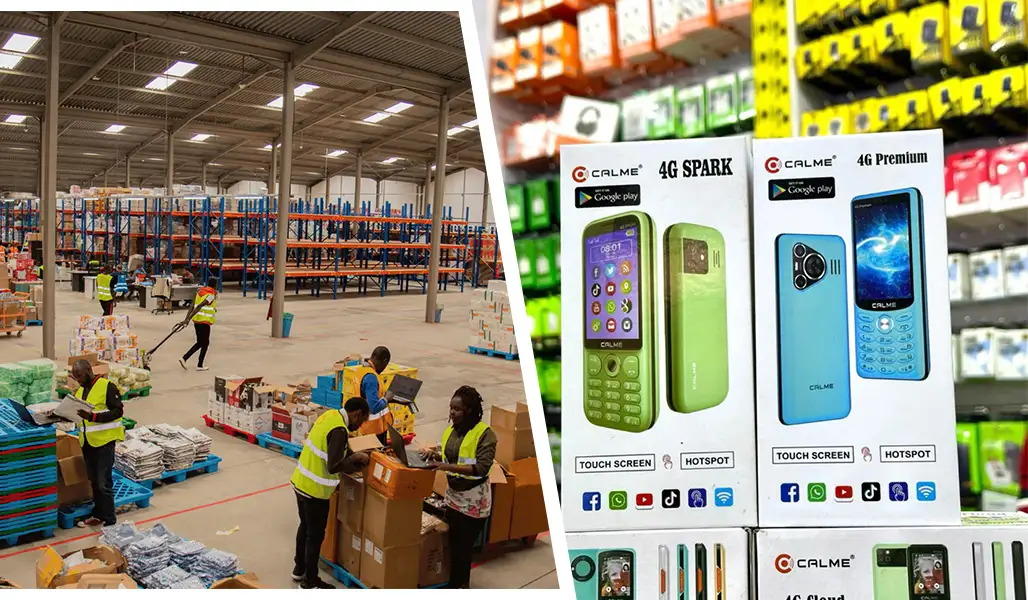
Have you ever recommended someone to buy something online, only to be met with, “What if they steal my money?” Yep, trusting online marketplaces is still a major challenge, not just for many Ugandans but even for people in much of the Global North. And if it’s not about trust, it’s usually the question of where to find a safe and better deal when buying your next smartphone.
Visiting a physical shop has its challenges. Beyond convenience, issues like counterfeit products or prices inflated based on a customer’s appearance are common. To a significant extent, these drawbacks of traditional retail have fuelled the rise of online stores, even as many still hesitate to trust them.
Let’s break it down when it comes to buying a smartphone.
First, buying a smartphone online through platforms like Jumia or from a phone shop on Kampala Road is basically the same thing. In most cases, it’s the same physical shops or importers trading as online vendors or third-party sellers. Platforms like Jumia list these sellers and act as intermediaries, connecting you, the customer, with them by facilitating secure transactions and ensuring you receive the exact product you paid for. These platforms often offer slightly lower prices and have no room for bargaining, except for the occasional discounts and promo codes.
How do these online marketplaces like Jumia make money? They make money through large-volume sales. Vendors benefit by selling more units, growing their total revenue even with low profit margins per item. The platform, in turn, earns commissions on each transaction and also generates income by offering advertising and logistics services to vendors. This volume-based model makes the setup profitable for both sides. Physical shops can’t easily match this because of limited foot traffic. That’s why when you visit a shop, they are always open to bargaining, to make sure you walk away with something and keep their cash flow moving.
Online platforms also stock large quantities of items, such as early-release phone models or bulk purchases and imports, allowing them to offer competitive prices while still making a margin. There could be other ways these platforms generate revenue, but to the outsider, more sales, more profit.
When it comes to the product itself, it’s often the same phone, probably from the same importer. But the real difference lies in the support you get during the purchase. In a physical phone shop, by word of mouth, you’re told this Tecno Spark Go 2 costs X, has 64GB storage and 4GB RAM, often leaving out key details that separate it from clones. Even receipts usually only mention storage and RAM. Remember, many phones have clone versions packaged identically with the same specs, but weaker hardware and poor performance. If you’re not tech-savvy, you could be misled.
Online platforms like Jumia Uganda do better here by bringing structure to the buying process. Along with user reviews below, each product listing includes detailed descriptions, covering key phone specifications like processor type, camera quality, and battery capacity…, so you know exactly what you’re buying. Before the order makes it to your gate, it goes through a thorough check at the warehouse for authenticity, whether it’s already in stock or picked from the seller. Items are then sorted and packaged for final delivery. This whole vetting process lowers the risk of receiving fake or wrong products.
These platforms also offer customer service lines for pre-purchase inquiries, though, like any seller, they ultimately want you to make a purchase.
One of the clearest differences is the return process. If the phone you receive online is faulty or doesn’t match the listed specs, it’s easier to file for a return through Jumia to deal with the seller on your behalf. Compare that to a physical phone shop on one of the buildings in Kampala, where asking for a refund or exchange usually hits a wall. Most tech gadget shops have a “goods once sold are not returnable” policy printed at the bottom of the receipt. And when returns are possible, by Ugandan standards, the back-and-forth (Komawo enkya nga bosi wali) is something a few are willing or able to deal with.
So, what’s the better option?
If you’re unsure about the product and need all the details before making a decision, buying online is safer. But if you already know the product and want to bargain, visit a physical shop. Just keep in mind that, so far, online stores, especially for phones, offer better prices not just in upcountry towns but also within Kampala.
In the end, whether you buy online or from a phone shop, you’re often dealing with the same sellers since many physical shop owners also list their products on platforms like Jumia. If you find it hard to trust online platforms, you can always choose pay-on-delivery. Some also argue that physical shops are losing customers and need to survive, but online platforms also create jobs for sales representatives, developers and designers, call centre agents, warehouse handlers, and delivery riders.
For clarification, Uganda has several online stores. But just like Amazon is the go-to example in the US, Jumia in this article is used to represent similar platforms like Kikuubo Online, Kibuga, Ellydeals, and HGO.
Joining our WhatsApp channel is free, along with all the content we share.
